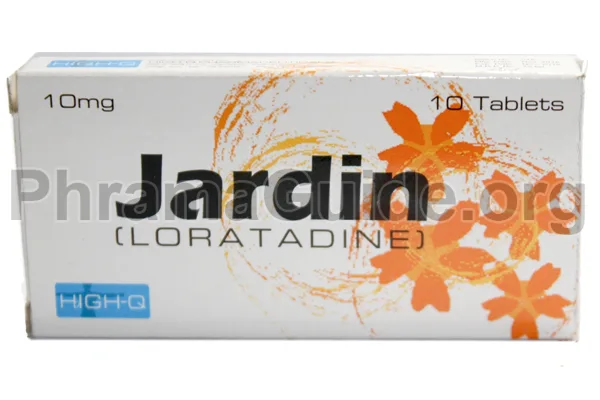Jardin is an antihistamine medication used to relieve allergy symptoms such as runny nose, sneezing, itchy or watery eyes, and itching of the throat or nose. It’s generally considered safe and well-tolerated, but like any medication, it can have side effects. Common and less common side effects of Jardin may include:
Common Side Effects
- Headache: Mild headaches are one of the most frequently reported side effects associated with Jardin.
- Dry Mouth: Jardin can sometimes cause a dry or irritated feeling in the mouth.
- Drowsiness: Although Jardin is considered a non-drowsy antihistamine, some individuals may still experience mild drowsiness. If this occurs, it’s usually less sedating than older-generation antihistamines like diphenhydramine.
- Stomach Upset: Some people may experience with Jardin minor stomach discomfort or indigestion.
Less Common Side Effects
- Nervousness or Excitability: In rare cases, Jardin may cause restlessness or nervousness.
- Stomach Pain: Some individuals may experience taking Jardin abdominal pain or discomfort.
- Allergic Reactions: While uncommon, some people may experience an allergic reaction to Jardin, including rash, itching, swelling, severe dizziness, or difficulty breathing. Seek immediate medical attention if this occurs.
- Unusual Fatigue: Although Jardin is generally considered non-drowsy, some individuals may experience unusual fatigue or weakness.
- Heart Palpitations: Frequent use of Jardin may cause irregular heartbeat or palpitations.

What is Jardin?
Jardin is one of the leading brands of Loratadine, manufactured and marketed by High-Q International (Pvt) Ltd.
Jardin : Available Formulations and Strengths
Presently, Jardin is available in Tablet and Syrup forms.
Jardin Tablet : Loratadin 10mg Strength.
Jardin D Tablet : Desloratadine 5mg strength.
Jardin D Syrup : Desloratadine 0.5mg/ml strength.
What Are The Possible Drug Interactions of Jardin?
- Sedatives and Alcohol: Combining Jardin with sedatives, including alcohol, can increase drowsiness and central nervous system depression. This can make you feel excessively drowsy, impair your coordination, and decrease your ability to concentrate.
- Ketoconazole and Erythromycin: These drugs, which are often used to treat fungal and bacterial infections, can inhibit the metabolism of Jardin. This can result in higher levels of loratadine in the body, potentially increasing the risk of side effects.
- Cimetidine: Cimetidine, often used to treat heartburn and stomach ulcers, can also slow the metabolism of loratadine used in Jardin and may increase its blood levels.
- Other Antihistamines: Combining Jardin with other antihistamines, either prescription or over-the-counter, can lead to an increased risk of side effects and drowsiness.
- Grapefruit Juice: Grapefruit juice can inhibit the metabolism of loratadine used in Jardin, potentially leading to increased levels of the drug in your body. This can increase the risk of side effects.
- Antifungal drugs: Azole antifungal drugs like itraconazole and fluconazole can increase the blood levels of Jardin’s ingredient loratadine, potentially leading to side effects.

Leave A Comment